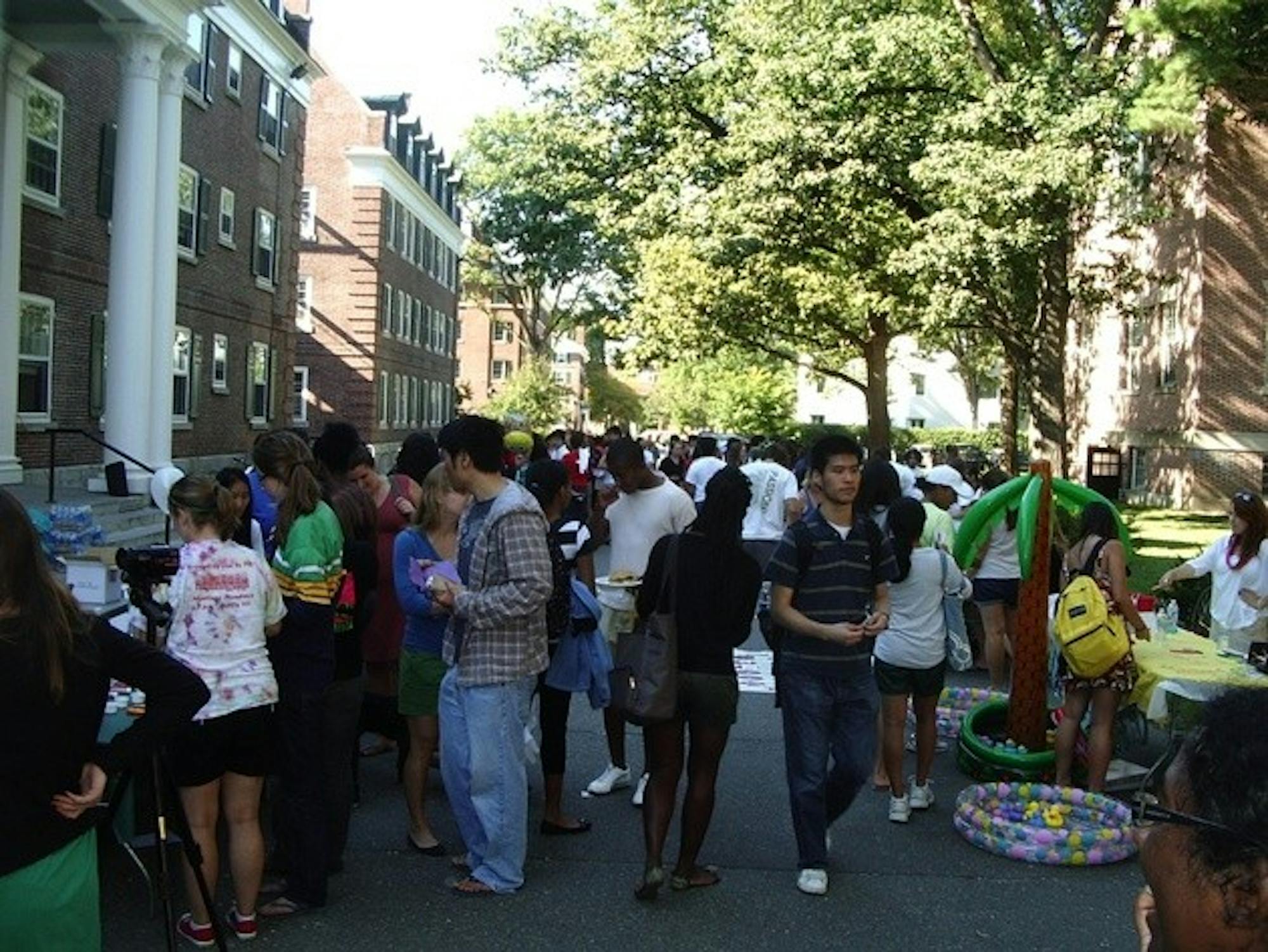"The purpose of the games with the educational background is that having a dildo ring toss or pin the clit on the vulva' is more entertaining and in some ways more welcoming than a brochure or a website," Baxivanos said. "I think the purpose is to be welcoming and to maintain a light-hearted attitude towards topics that are otherwise taboo."
The activities staged during Consent Day were intended to attract students and encourage them to confront consent issues on campus, according to Cat Faber '12, a member of the Mentors Against Violence program who helped organize the activities. Faber cited ambiguous state laws concerning consensual sex as one reason to educate students about the topic.
"According to New Hampshire state law, non-consensual sex [includes] someone who consents while drunk," Faber said. "Even the government hasn't pinned down what consensual sex is, so it's important that the conversation is everywhere and everyone is aware of it."
Despite the event's emphasis on safe and consensual sex, some students may have accidentally received expired condoms during the event, Ashley Roland '12 said in an e-mail to The Dartmouth. Roland said she was "just surprised" when she realized that she had received a condom that expired in April 2010 from "the booth on HIV and hepatitis."
Faber and Department of Health Promotion Director Bryant Ford said they were unaware that a student had received an expired condom from a vendor at Consent Day.
"The fact that someone got an expired condom is very unfortunate," Ford said. "Students should check to see if there is an expiration date on the condom, and should clearly not use them if it's past the expiration date. I'm happy to e-mail [the community vendors] and let them know a student got an expired condom."
Faber said the incident can be used to further encourage education regarding safe sex practices.
"I wouldn't say it's a campus emergency type deal," she said. "I'm hoping that people check the expiration date on condoms before using them anyway. That's something we recommend people do on a regular basis."
The Consent Day committee, which purchased "120 to 160" LifeStyles and Crown condoms that were not expired, "couldn't have prevented" outside vendors from distributing expired condoms, according to Faber.
Overall, however, Consent Day was a success, Ford said.
"We were getting students congregating and having meaningful conversations about what consent is, and what it is not," he said.
During the first hour and a half of the event, there was a "constant stream of people" visiting different tables, Faber said. Although Consent Day organizers did not count the number of people who attended, Faber said that approximately "200 to 250" students actively participated and received a "Consensual Sex is hot" T-shirt.
Students were required to visit at least nine tables and receive signatures from the tables' sponsors in order to receive a free T-shirt, according to Faber. The shirts were entirely funded by Student Assembly, she said.
Although the games and free apparel were likely a draw for many of the student participants, Faber said that the T-shirts themselves will help educate students about consent.
"I think students definitely went for the games and free stuff, but we knew that, and we just really wanted to get our slogan out there," Faber said. "We really wanted the [event to have] longevity, not just [to be] like an information session."
After students submitted nine signatures and received a T-shirt, they were asked to sign a pledge to always ask for consent and to be aware of consent-related issues.
Students who submitted their nine signatures to organizers were entered into a raffle for gift certificates to Un-Dun, an adult product store in West Lebanon, N.H.
Programming Board donated $1,800 for food and decorations for Consent Day and approximately 10 Greek organizations worked at booths featuring a game or activity of their choosing, Faber said. Greek houses that did not work at a table at the event donated money, she said.
Although the event primarily promoted issues relating to consent, community vendors from other sexual health organizations such as Planned Parenthood and WISE an Upper Valley-based organization that provides services to women who suffer from sexual or domestic violence also participated in the event.
Staff writer Elizabeth Sullivan contributed to the reporting of this article.




